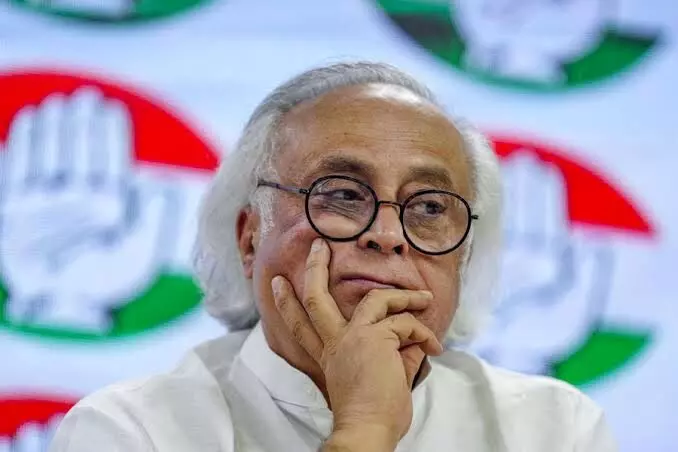'Insult to Constitution': Congress slams govt over Manusmriti reference in draft Shram Shakti policy

New Delhi: Stepping up its attack on the government over the draft Shram Shakti Niti, the Congress on Thursday claimed it draws inspiration from ancient texts like the Manusmriti and therefore is an "insult" to the Constitution as well as against the legacy of B R Ambedkar. Congress general secretary in-charge communications Jairam Ramesh, cited the draft of the the Shram Shakti Niti 2025, and said it draws inspiration from the Manusmriti which has contributed to caste system and casteism in our country. Speaking with reporters, Ramesh alleged the RSS was against the Constitution since it was adopted on November 26, 1949, on the grounds that it is not based on the values of the Manusmriti. "Now the draft of the Modi government stated that the Shram Shakti Niti draws inspiration not from the Constitution of India but from ancient texts like the Manusmriti. This is an insult to our Constitution and must be condemned," he said.
Ramesh also questioned as to why the NDA's double engine in Bihar did not secure Constitutional protection to the quota law. "The Constitution is being insulted and attacked on a daily basis and to say that our policy is being based on the Manusmriti is completely against the legacy of Dr Baba Saheb Ambedkar," Ramesh said. The Congress on Wednesday had accused the Modi government of returning to the principles of Manusmriti by coming out with a new draft Shram Shakti policy released earlier this month which claims 'Manusmriti' embeds the moral basis of labour governance within the civilisational fabric. Ramesh had shared the text of the new policy which says, "Ancient texts such as the Manusmriti, Yajnavalkyasmriti, Naradasmriti, Sukraniti, and Arthashastra articulated this ethos through the concept of rajadharma, emphasising the sovereign's duty to ensure justice, fair wages, and the protection of workers from exploitation. "These early formulations embedded the moral basis of labour governance within India's civilisational fabric, centuries before the rise of modern labour law."



